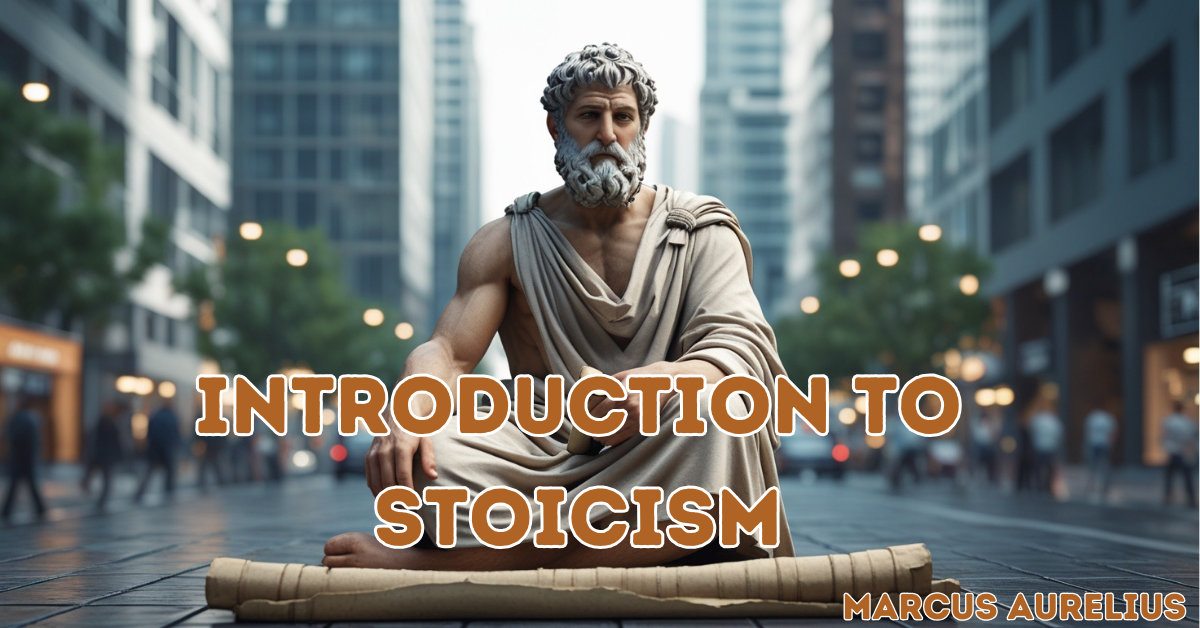In today’s fast-paced world, where uncertainty and chaos seem to be the norm, many individuals are searching for a philosophy that provides inner peace, resilience, and clarity. Stoicism, an ancient Greek philosophy, offers timeless wisdom that can be applied to modern life, helping us navigate challenges with rationality and grace. In this comprehensive guide, we will explore the origins, principles, key philosophers, and practical applications of Stoicism, demonstrating how this powerful philosophy can transform your life.
What is Stoicism?
Stoicism is a Hellenistic philosophy founded by Zeno of Citium in Athens around 300 BCE. It emphasizes rationality, self-control, and virtue as the path to a good life. Unlike other philosophies that focus on external pleasures or material success, Stoicism teaches that true happiness comes from within, through mastery over one’s thoughts and actions.
The Core Beliefs of Stoicism:
- Virtue is the highest good: The Stoics believed that living a virtuous life is the only path to true happiness.
- Focus on what you can control: External events are beyond our control, but we have full command over our reactions and perceptions.
- Live in accordance with nature: This means aligning our will with the natural order of the universe.
- Practice resilience and endurance: Life is filled with hardships, and Stoicism teaches us to endure them with dignity.
- Stanford Encyclopedia of Philosophy – Stoicism
- Internet Encyclopedia of Philosophy – Stoicism
The Four Cardinal Virtues of Stoicism
The foundation of Stoic philosophy is built on four primary virtues:
1. Wisdom (Phronêsis)
Wisdom is the ability to navigate complex situations rationally and make sound judgments. A Stoic develops wisdom through lifelong learning and reflection.
2. Courage (Andreia)
Courage is not just physical bravery but also the moral strength to stand by one’s values and make difficult decisions despite fear or uncertainty.
3. Justice (Dikaiosynê)
Justice in Stoicism refers to fairness, integrity, and treating others with respect. A Stoic believes in doing what is morally right, regardless of personal gain.
4. Temperance (Sôphrosynê)
Temperance is the practice of self-control and moderation. It involves mastering desires and emotions rather than being ruled by them.
Key Stoic Philosophers and Their Teachings
Zeno of Citium (c. 334–262 BCE)
- Founder of Stoicism.
- Taught that happiness comes from virtue, not external possessions.
Seneca (c. 4 BCE–65 CE)
- Roman statesman and Stoic philosopher.
- Wrote extensively on how to live with wisdom and face adversity.
- Famous Work: Letters to Lucilius.
Epictetus (c. 50–135 CE)
- Former slave turned philosopher.
- Emphasized the importance of distinguishing between what we can and cannot control.
- Famous Work: The Enchiridion.
Marcus Aurelius (121–180 CE)
- Roman Emperor and Stoic philosopher.
- His personal reflections, Meditations, remain one of the most influential Stoic texts.
- Advocated for self-discipline, rational thinking, and moral duty.
Practical Applications of Stoicism in Daily Life
1. Mastering the Dichotomy of Control
One of the most powerful Stoic teachings is the Dichotomy of Control—understanding what is within our control and what is not.
What we can control:
- Our thoughts
- Our emotions
- Our actions
What we cannot control:
- Other people’s opinions
- External events
- The past and future
How to apply it:
- Stop worrying about things outside your control.
- Focus only on what you can influence.
- Practice acceptance and inner peace.
2. Journaling Like a Stoic
- Marcus Aurelius’ Meditations is essentially a Stoic journal.
- Daily reflections help in self-improvement and emotional clarity.
- Practice by writing down lessons learned and areas for growth.
3. Practicing Voluntary Discomfort
- Seneca recommended practicing discomfort occasionally to prepare for adversity.
- Examples: Taking cold showers, fasting, or sleeping on the floor.
- Builds resilience and gratitude for what we have.
4. Memento Mori – Remembering Mortality
- Memento Mori is a reminder that life is short.
- Helps prioritize meaningful actions.
- Encourages gratitude and living in the present moment.
Modern Relevance of Stoicism
Many modern leaders, entrepreneurs, and athletes embrace Stoicism to develop mental toughness and discipline. Notable figures influenced by Stoic philosophy include:
- Ryan Holiday – Author of The Daily Stoic.
- Tim Ferriss – Entrepreneur who credits Stoicism for his success.
- Navy SEALs – Use Stoic principles for resilience under extreme pressure.
Stoicism is not just a historical philosophy—it is a practical framework for living a fulfilling and meaningful life. By focusing on virtue, understanding what is within our control, and practicing resilience, we can cultivate inner peace and wisdom. Whether you are seeking to improve your personal growth, leadership skills, or emotional stability, Stoicism offers a timeless roadmap to excellence.


